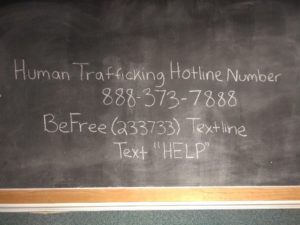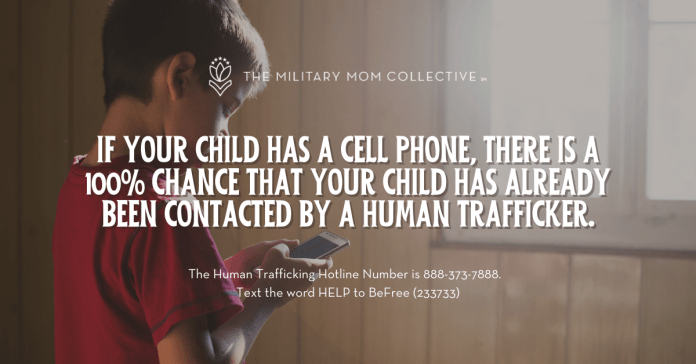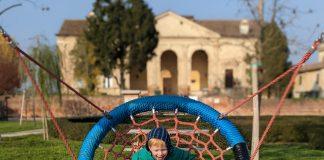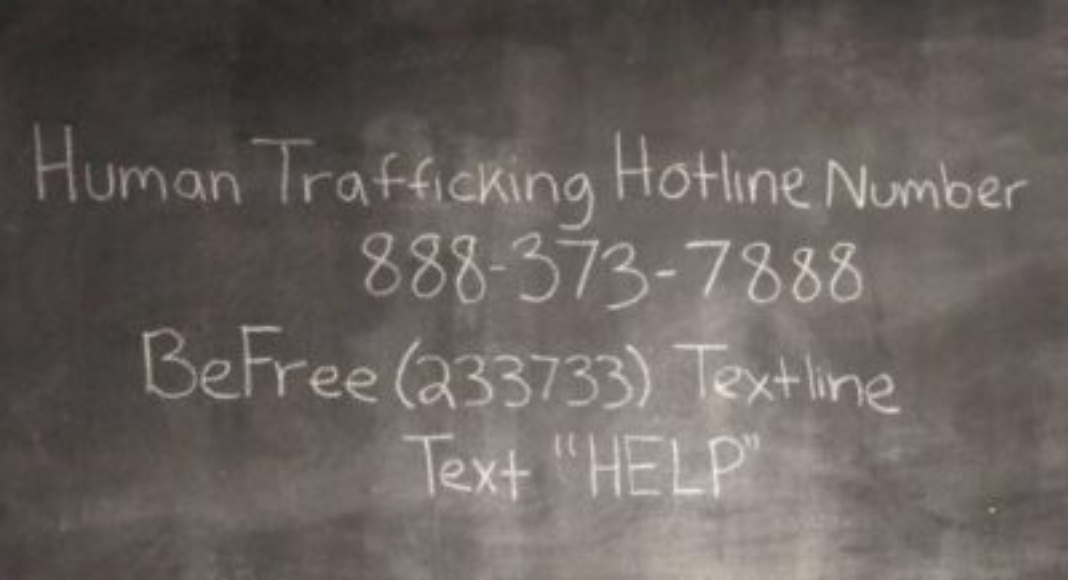In 2019, I was trying to think of something interesting to write about for this blog. When I heard that my local coffee shop used their profits to fight human trafficking, I knew I needed to interview the owners and share what I learned with the MMC community. What I didn’t know was how much that one article would change my life.
Tina Kadolph is one of the co-owners of Palate Coffee Roastery and the President of Love Missions Global, a non-profit located in Central Florida that fights human trafficking both locally and around the world. Her story touched my heart in ways I cannot describe and once I learned about the work she does in our community, I knew I had to be part of it.
Three years after meeting her, she is now one of my very best friends, the person I do life with every day, and my “boss” as I volunteer as Love Missions’ Communications Director, now. One little coffee shop interview flipped my world upside down.

What I offer you today is an updated version of the article I wrote three years ago. The article that changed everything for me.
Tina’s Story
Love Missions seeks to abolish modern-day slavery and the exploitation of children around the world. And until my interview with owners Carl and Tina, I had no idea that my children have already been targeted, and so have yours.
I wish you could sit down with Tina, have a cup of coffee, and listen to the complete transformation of her life from victim to victim advocate, from slave to abolitionist, from hopeless to hope-giver.
Yes, Tina is a survivor of childhood sex trafficking. Her mother started selling her for sex when she was only four years old.
You can hear some of Tina’s story in her own words in this interview with Military Mom Collective’s Live series. It will punch you in the gut, make you hug your babies tighter, encourage you to be proactive in protecting your kids, and inspire you to get involved in the fight against modern-day slavery.
For Tina, human trafficking is a very real and very personal issue. As a survivor, she is passionate about raising awareness, educating families, and providing much-needed resources and opportunities for other survivors. She knows what it is like to hate life so much that you try to end it. She doesn’t want another person to ever feel hopeless, and so she endeavors to eradicate the evil of human trafficking in our country and around the world.
Social media has helped organizations such as Love Missions spread awareness and offer a call to action, yet there is still so much that I didn’t know that I didn’t know. Maybe you’re diligent like I am in keeping the conversation open with our children about child predators, never talking to strangers, and only engaging online with people they know in person… but what if that’s not enough?
If you’re like me, this list is for you.
7 Things You Probably Didn’t Know About Human Trafficking
#7- Pedophiles and traffickers can lure in your children through any app that allows messaging.
We think about online predators using dating apps to lure in women, but did you know they use innocent-looking platforms such as YouTube cartoons, a fake calculator app, your Xbox, Instagram, TikTok, and even reading apps? If there’s a way for your child to talk with someone they don’t know, predators will use those apps to befriend them under false pretense. They will pretend to be your child’s age and groom them into a friendship over a period of weeks or even months, earning their trust and setting the framework for exploitation.
#6- Human trafficking doesn’t just happen in big cities.
Not only is it happening in our country, it’s happening right here in our own backyards. It’s happening in small town America. It’s happening around your base and happening right under our noses. And FBI agent explained to us just how dangerous the dark web is and how traffickers are able to log on and shop for children much like you and I shop for new shoes. Your town probably has a list of available children and women that can be purchased for labor and/or sex right this very minute on the dark web. Mine does. And it sickens me.
#5- Boys are trafficked, too.
The movies tend to show women in Cambodia or little girls in Bangladesh being ripped from their homes and forced into slavery but the truth is that little boys are trafficked, too. Boys are even more difficult to rescue and rehabilitate because they tend to be more embarrassed and harbor shame which prevents them from coming forward to seek help. While the Polaris Project identified boys only making up around 7% of the survivors who came forward in 2021, every family needs to be aware that their children are targeted regardless of their gender.
#4- Traffickers can be doctors, lawyers, and CEOs, too. They can also be women.
With the sex trafficking charge (and then suicide) of financier and convicted sex offender Jeffrey Epstein, the world learned that traffickers aren’t always the stereotypical pimps or creepy, gawky men with handlebar mustaches driving white vans, or perverts living in their mother’s basement. They are frequently doctors, lawyers, CEOs, and men or women of great financial means that often hire others to do the dirty work for them. Yes, women traffic other women and children, too. It’s a lucrative business and women are typically able to gain the trust of other women and children easier than men can.
#3- Foster care children, immigrants, and refugees are at greatest risk for becoming victims of human trafficking. Why? Because of relocation. So, guess what- military kids are at risk, too.
This statistic breaks my heart, and I’m not afraid to say that it should break yours, too.
It’s no surprise that the most vulnerable among us are most often victimized, but it crushes my heart to think that women, teens, and children who have recently lost their homes and are trying desperately to make their way in this world are the ones most likely to be sold into slavery in America, land of the free, home of the brave. A reported 50,000 victims are trafficked into the US each year. What sickens me even more are Tina’s stories of foster care group homes and individuals responsible for caring for our most vulnerable who are so weak and cowardly that they choose people who have already been victimized to become their victims of human trafficking.
As hard as that is to swallow, what’s scary is that military families are often at great risk because most of us move every few years. Relocation or migration is the number one risk factor for making someone more susceptible to becoming a victim of human trafficking. The lack of a good support system, the desire to make friends, and the insecurities felt by young people when they move create a perfect storm for predators.
#2- Your child has already been targeted by a human trafficker.
A FBI AGENT ONCE TOLD TINA THAT IF YOUR CHILD HAS A CELL PHONE, THERE IS A 100% CHANCE THAT YOUR CHILD HAS ALREADY BEEN CONTACTED BY A HUMAN TRAFFICKER.
That seems completely ridiculous and utterly impossible … except it’s not.
With 500,000 child predators online every single day, the reach is far. To make matters worse, 70% of young people will accept a “friend request” from people that they don’t know. If your child has an online presence of any kind, they’ve been seen by a child predator, at least once.
#1- Many children and teens are trafficked “in plain sight.”
Of all the startling realizations on this list, this one sucker-punched me the hardest. Being a mama of five, I cannot imagine finding out that this had been happening to one of my own. “In plain sight” cases occur when someone is targeted through social media or gaming. Over days, weeks, or even months, a victim is groomed by predators pretending to be a child of similar age. FBI agents state that these predators go to great lengths to engage with children, to the point of wearing adult diapers while engaging online so that they never even have to step away to use the restroom. These predators are committed to making our children trust them. Why? Because traffickers can make anywhere from $250,000 – $600,000 a year for each child they “own.” It starts innocently, and it will carry on until the trust that has been built up is significant. Children unknowingly give away private information such as their name, address, or school name. Predators then arrange to meet with them at the playground, down the street, or in some other manner and the child is never seen again.
With teenagers, predators use both social media and even in-person encounters in the neighborhood or at their place of employment to gain their trust. Predators often hire younger, good looking individuals to lure them in. When they find a young person they deem as vulnerable, they convince him or her to start sexting and sharing pictures or videos of themselves. Then they turn it around and blackmail them. Sometimes they go as far as threatening the victim’s family if they don’t cooperate. These are the girls and boys who end up on the dark web’s shopping list. These victims can be purchased by the hour and their traffickers arrange for them to be delivered to hotel rooms and other meeting places. What started as a social media infatuation or coffee house crush quickly escalates into the biggest mistake of the young person’s life.
These victims who are trafficked “in plain sight” carry shame and fear and feel they have no option but to do as they’re told. They’re often good girls that go to your kids’ school or your church, or the nice boys who live in your neighborhood. They’re not usually the kids living on the streets that you “expect” to get “caught up” in such a lifestyle. They are young people who are loved. Cared for. Respected.
It might have even happened to you.

If you or someone you know has been a victim of human trafficking, it is never too late to get help and healing. The Human Trafficking Hotline Number is 888-373-7888. You can also text the word HELP to BeFree (233733) anytime.
What You Can Do To Protect Your Children from Human Trafficking
- Become informed. Completely informed. Even when it disgusts you, keep reading. The bad guys are always finding new ways to infiltrate the barriers we put up, so be vigilant in learning about ways to continually protect your children.
- Inform your children. I know it’s hard because you don’t want to scare them, but it’s important for our kids to know that it’s not OK to talk to strangers online – even strangers who say they’re the same age or who have a profile picture that makes them look the same age. Our kids are oblivious to the evil of this world and while we want to shield them from it, we still have an obligation to prepare them for the encounters online that are very likely to come. They should know that if they ever are approached, you’re on their side and that you will be ready to help them. Some kids will stay quiet because they don’t want to lose a game or app that they love. That’s why it’s so vital to clearly communicate the danger in a way that they will take seriously while also maintaining their trust.
- Ask your school, youth group, scout group, or neighborhood to get involved and get educated. There are organizations and programs ready to help.
- Practice e-monitoring of all of your children’s devices. Yes, I know that’s a lot of work. (I have 5 kids, remember?!) But the bad guys put in a lot of hours to steal our kids. We can put in the hours required to protect them. This means reading their texts and instant messages. But this also means looking at their apps. All of their apps. Even the seemingly innocent apps like their calculator which, FYI, can be a fake messaging app. Consider using an app like Bark that will do all the monitoring for you. It’s easy to set up and you can customize the settings so that you’ll be notified when key words are used on your child’s devices.
- Know the signs of children who are being trafficked: If you child suddenly has new clothes, jewelry, shoes, etc that you did not purchase, they may be involved with trafficking. If your child has a phone that you didn’t purchase, this is a huge sign as traffickers like to communicate through accounts that parents cannot see. If your child always has an excuse for where he/she “needs” to go, is overly tired (more than usual), is having trouble sleeping, becomes extremely emotional or emotionally shuts down, seems anxious and fearful, or just seems that something is completely wrong, you need to investigate further to make sure your child is not being victimized by a human trafficker.
- If you see something, say something. Do not hesitate to call the Human Trafficking Hotline at 888-373-7888 or your local police department.
I know it might seem ridiculous to think that one of us could have a child who has been sex trafficked. Our minds just don’t work that way. Our hearts refuse to believe it could happen to us. To our precious kids. But that doesn’t make it any less real. As parents and grandmas and aunts and friends, we have the opportunity to protect ourselves and our children from the monsters of human trafficking. Our friends, our siblings, our children, and the vulnerable among us deserve to be protected.
I’m ready to fight for their freedom. Are you?











